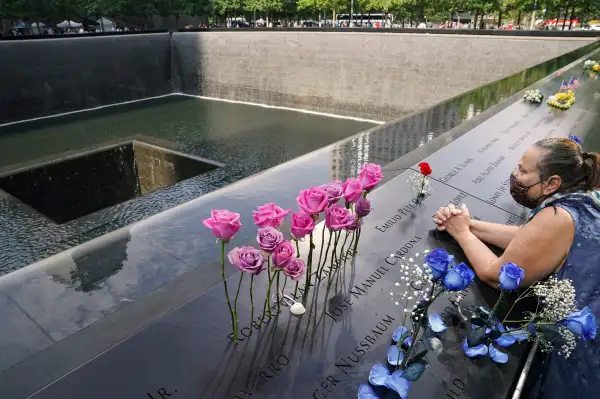Where to Donate to 9/11 Charities That Are Still Helping Victims, First Responders and Their Families

In the wake of the 9/11 terrorist attacks, Americans opened their wallets and gave generously. There was an "unprecedented outpouring of charitable support," the Foundation Center later wrote, with institutions and individuals donating some $2.8 billion in the months following the tragedy.
As the years passed, organizations spent (and, in some cases, misused) much of that money. Two decades later, there's still need — and there are still nonprofits accepting donations to provide long-term support for people affected by 9/11.
Before you donate to any charity, the Federal Trade Commission recommends you Google it to make sure it's not a scam, look for financial details on its website, verify its registration, research its history using a tool like CharityWatch and see whether your donation will be tax-deductible.
If you're searching for a place to donate money to victims, first responders and their families on the 20th anniversary of 9/11, here are a few places you may want to start.
The FDNY Foundation and the New York City Police Foundation
Charity Navigator spotlighted these two groups last year on a list of highly-rated charities "committed to raising money and distributing support to the families of those killed or injured on September 11, 2001, and the first responders who were affected."
Though the FDNY Foundation predated 9/11 — it was established in 1981 — it serves the city's firefighters, who were crucial in responding to the attacks. The FDNY Foundation buys them high-tech equipment, funds training efforts, and helps with fire and life safety education initiatives.
The New York City Police Foundation has a similar mission but with a law enforcement focus. Police personnel and the community are its priorities; the foundation does not buy weapons.
Tuesday's Children
Formed as a result of 9/11, Tuesday's Children aims to make sure "families who have suffered losses due to the events of 9/11, post-9/11 military service or other acts of mass violence and terrorism always have a comforting place to turn to," according to its website. Programs include grief and career counseling as well as youth mentorship.
Families of Freedom Fund
Since Scholarship America created it in 2001, this fund has given nearly $180 million to over 3,700 students whose parents and/or spouses died or were permanently injured in 9/11. Beneficiaries of people who were on the airplanes, in the World Trade Center, in the Pentagon and involved in rescue efforts during and after the attacks are all eligible.
Former President Bill Clinton and former Sen. Bob Dole, R-Ky., led its initial fundraising drive and are still involved today. This academic year, the Families of Freedom Fund is paying 40% of recipients' financial need.
Voices Center for Resilience
Originally set up to provide long-term mental health support and other programs for Americans affected by 9/11, VOICES has changed over the years. It now uses its "expertise to assist all communities impacted by any tragedy," according to the website, from helping families figure out how to get death certificates to sharing tips on how to talk to kids about violent events.
HEART 9/11
Rescuers brought together by 9/11 tap their "unparalleled experience to support, supplement and transfer skills and knowledge to suffering communities" through this nonprofit. HEART 9/11 stands for Healing Emergency Aid Response Team.
Members have literally rebuilt houses after disasters like Hurricane Sandy; they also specialize in retrofitting existing homes to better accommodate injured first responders by installing walk-in tubs, lowered countertops and the like. With a handful of partners, HEART 9/11 also offers resiliency training programs and teaches stress management to first responders.
The Jennifer Kane Scholarship and Charitable Trust
If you're afraid your donation will get lost in the expensive operations of a big organization, you may want to look into one of the many smaller, family-run groups doing good work. One example is this fund, which was set up in memory of 9/11 victim Jennifer Kane, a 26-year-old accountant who was working in the World Trade Center. Kane's parents oversee the trust. (Her dad recently told Wicked Local that "we've always gone back into Jen’s life to pick a cause she would think was important.")
This year, the fund is giving 100% of donations to Homes for Our Troops, School on Wheels of Massachusetts, Plymouth Old Colony YMCA Camp Clark and the Make-A-Wish Foundation of Massachusetts and Rhode Island. The Kanes cover administrative expenses themselves, so your entire donation will be put to work.
More from Money:
Coronavirus and Charity: How Can I Make the Most Impact with My (Kinda Small) Donation?
Bethenny Frankel on Why You Should Approach Giving to Charity Like Investing
10 Ways to Give to Charity When You're Short on Cash
